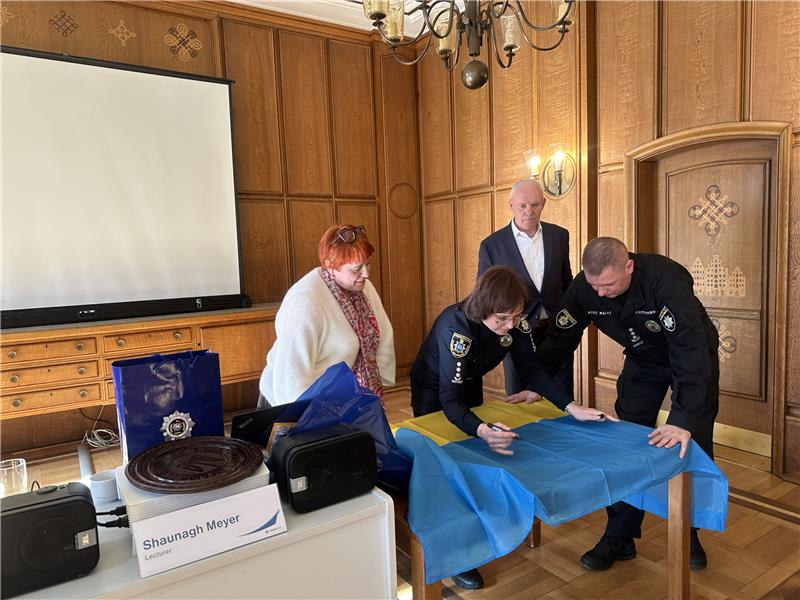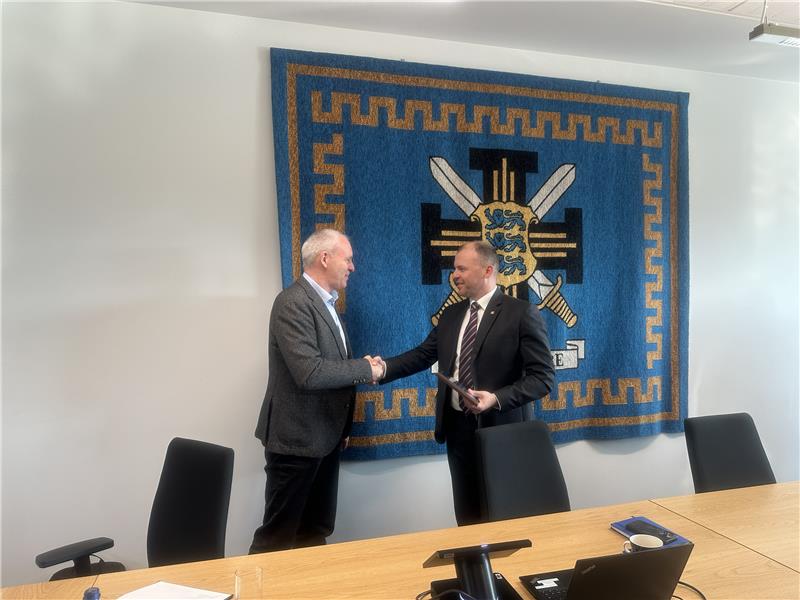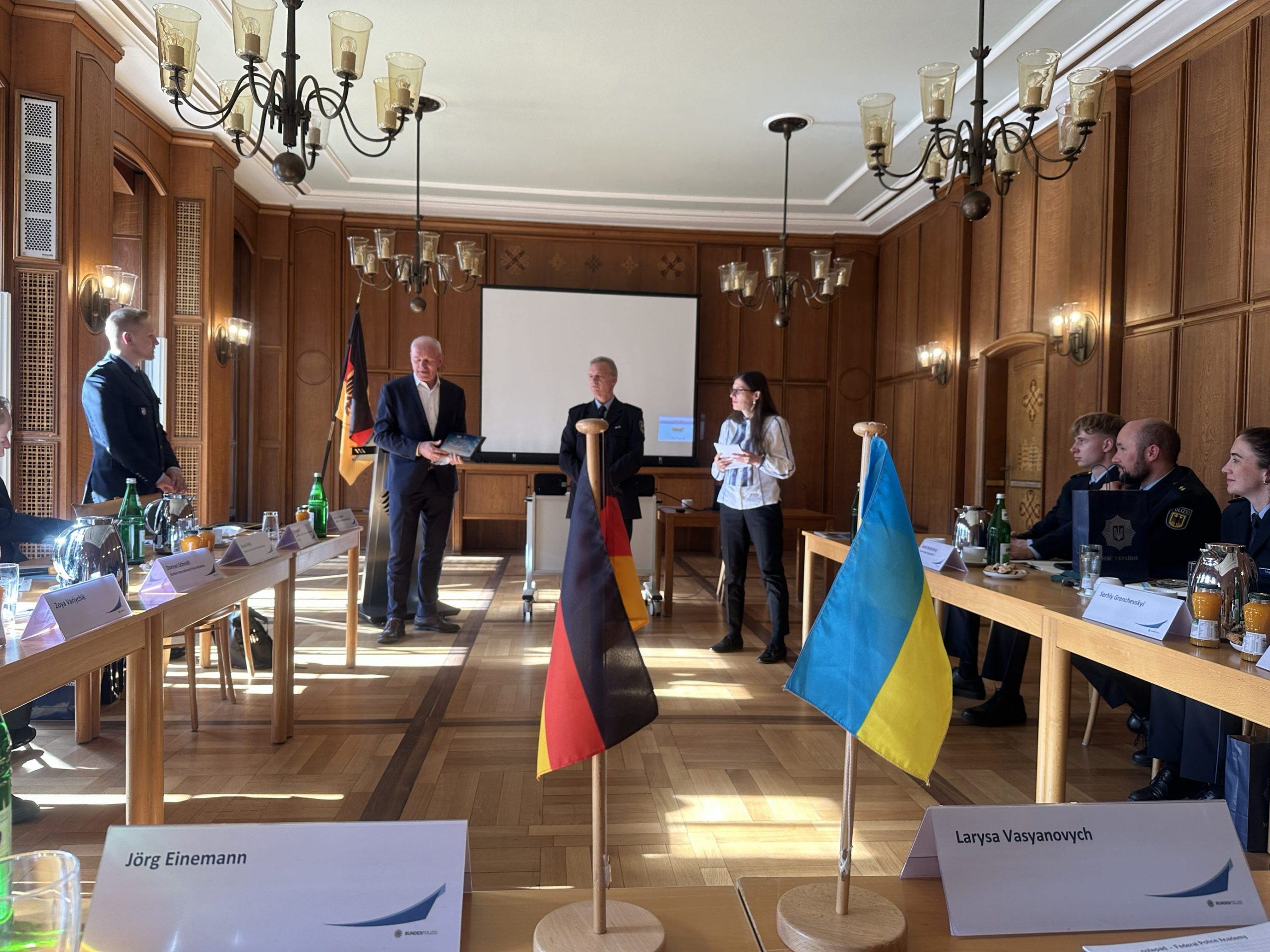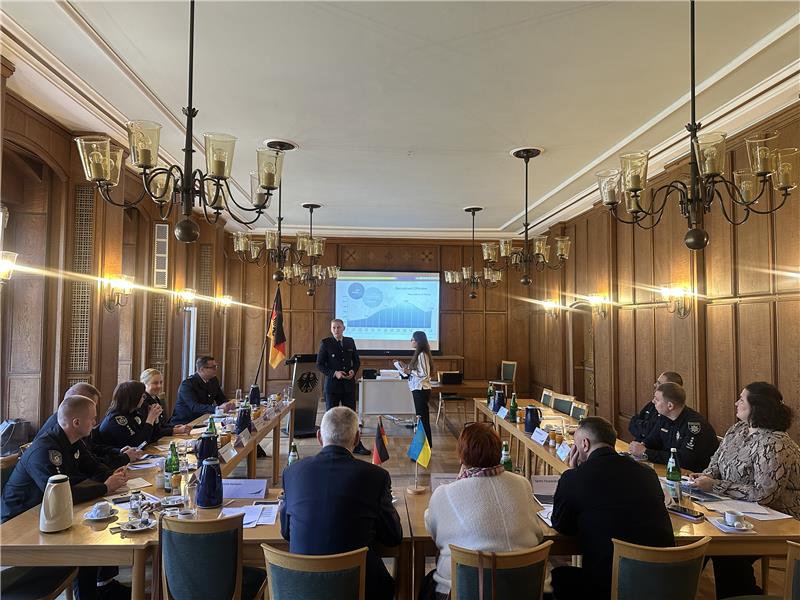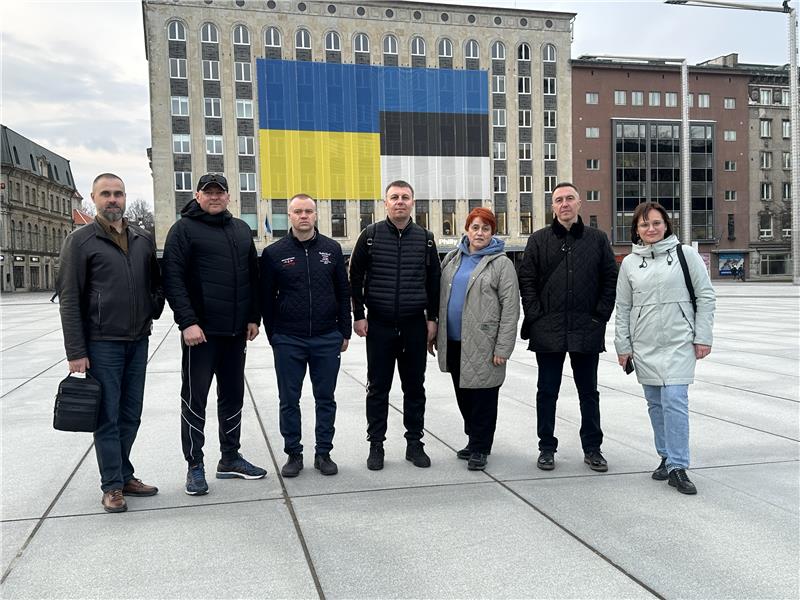Ukraine looks to EU models in reforming police education
April 11, 2025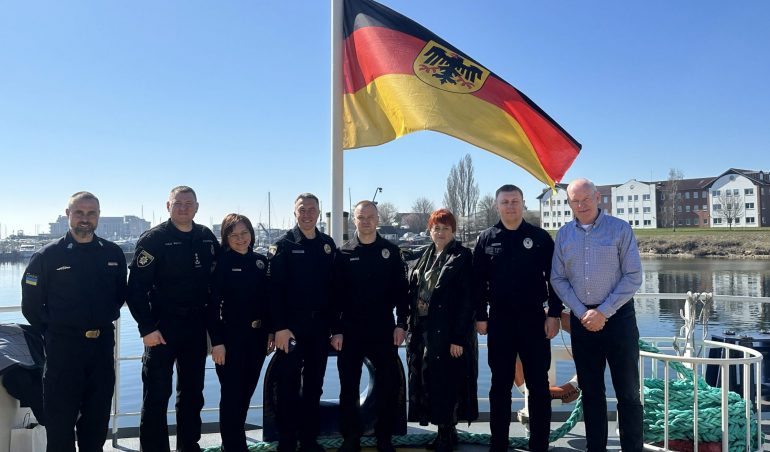
A delegation of Ukrainian law enforcement officials has returned from a week-long study visit to Estonia and Germany, where they explored how modern police education is structured and delivered across the European Union.
From 30 March to 6 April, representatives from the Ministry of Internal Affairs of Ukraine (MoIA), the National Police of Ukraine, and the State Border Guard Service of Ukraine visited leading institutions including the Estonian Academy of Security Sciences, the Federal Police Academy of Germany, and the German Maritime Training Centre.
The visit, facilitated by the European Union Advisory Mission (EUAM) Ukraine, aimed to support Ukraine’s ongoing reform of police education by identifying effective practices and systems that could be adapted at home.
“This visit was a valuable opportunity to exchange knowledge with experienced colleagues,” said Joerg Einemann, EUAM’s Head of IBM and Law Enforcement Component. “We want to help Ukrainian institutions shape a police education system that is professional, responsive and aligned with European standards.”
The visit focused on how police education is structured, how professional development is maintained throughout an officer’s career, and how new policing methods are integrated into training. Discussions with EU experts covered everything from curricula design to the importance of lifelong learning in law enforcement.
Germany and Estonia were chosen for their well-regarded approaches to police training and public safety. Their systems have been built around democratic accountability, community engagement, and continuous improvement—values that Ukraine seeks to embed in its own reforms.
The visit, which participants described as “inspiring and practical”, left a strong impression on the Ukrainian delegation. It offered a clear picture of how well-organised training and forward-thinking approaches can shape a modern police force.
“We saw how strategic planning, well-trained instructors and modern infrastructure all contribute to an effective education system,” the First Deputy Director of the Department of Education, Science and Sports of the MoIA Larysa Vasianovych said. “This leads us to think about how we can change the ministerial system of education in Ukraine.”
This study visit is part of EUAM Ukraine’s broader work to support sustainable reform across civilian security institutions. The mission works closely with Ukrainian partners to improve management, enhance transparency, and deliver security services that meet the expectations of citizens.
As Ukraine continues to modernise its police forces during wartime, adopting best practices from EU neighbours is a vital step towards building resilient and trusted institutions.


